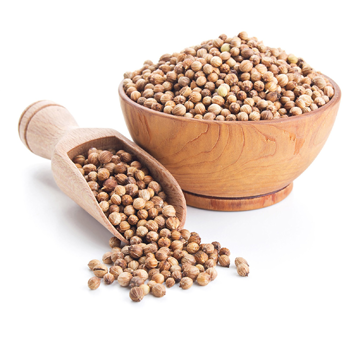
Coriander seeds
Common Name:- Coriander, Dhania
Coriander, popularly known as Dhania in India, is extensively used across various regional cuisines to flavor curries, snacks, breakfast items. Coriander is considered both an herb and a spice since both its leaves and seeds are used as a seasoning condiment.
Coriander Seeds (Dhania) have a distinctive aroma and taste that helps in enhancing the taste of a Cuisine, when added. Coriander seeds are widely used in Garam Masal for Seasoning the dishes and enhancing their flavor. These coriander seeds are also main ingredient in the South Indian Cuisines like sambhar & rasam.
Apart from culinary purpose, they are also used as a diuretic and for general digestive aid. These tiny coriander seeds are magical for all your intestinal issues. These seeds help in reducing bad cholesterol and improve Hair and Skin quality.
BENEFITS-NUTRITION
People use the seed for medicine. Coriander is used for digestion problems including upset stomach, loss of appetite, hernia, diarrhea, bowel spasms, and intestinal gas.
It is also used to treat measles, toothaches, worms, and joint pain, as well as infections caused by bacteria and fungus.
Use in all types of curries, pickles, chutneys, sauces and Sprinkle over fresh salads.
Use to flavor homemade bread, waffles, scones and flavor soups, carrot and coriander is quite popular.
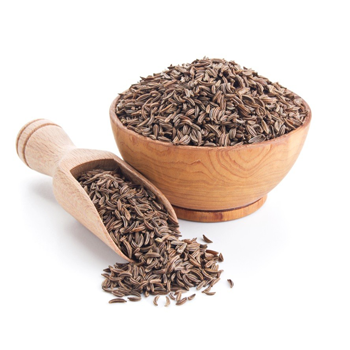
Cumin Seeds
Common Name:- Jeera, Cumin, Acre
Cumin or Jeera as is commonly called India’s one of the important spices & condiments, widely used for culinary as well as medicinal purpose Cumin is the dried seed of the herb cuminum, cyminum a member of the parsley family, native from the east Mediterranean to South Asia.
Cumin is a common ingredient in many savory dishes from around the world. It adds a warm flavor and works especially well in soups, stews and curries. People can also use this spices to season vegetables or meats before roasting. In South Asian cooking it is often combined with coriander seeds in powdered mixture called “Dhana Jeera”.
The main producer and consumer of cumin is India. It produces 70% of the world supply and consumes 90% of that (which means that India consumed 63%of the world’s cumin) others producers are Syria (7%), Iran (5%) and Turkey (6%) the remaining 11% comes from other countries. In India cumin is sown from October until the beginning of December, and harvesting starts in February.
BENEFITS-NUTRITION
According to the United States Department of Agriculture’s food central database, One teaspoon of whole cumin seeds contains 7.88 calories, 0.37 g of protein, 0.47 g of fat, 0.93 g of carbohydrate.
The same amount of cumin seeds also provides 19.6 mg of calcium, 1.39 mg of iron and 7.69 mg of magnesium, Cumin also contain Antioxidants. Besides being used for medicinal purposes like for proper digestion and nutrient assimilation, consuming cumin powder with yogurt decreases body weight, waist size, body fat and cholesterol.
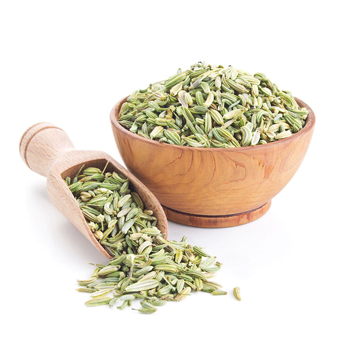
Fennel Seeds
Common Name:- Fennel, Souff, Florence Fennel
Fennel (Foeniculum Vulgare) is a Flowering plant species in the carrot family. It is a hardy, perennial herb with yellow flowers and feathery leaves. Dried Fennel seed is an aromatic, anise flavored spice, brown or green in color when fresh, slowly turning a dull grey as the seed ages.
In India it is mainly harvested in February – March. India produced 60% of the world output of Fennel, with China and Bulgaria is leading secondary producers. Fennel Seeds is rich sources of Protein, Dietary fiber, Vitamin B and several dietary minerals.
Fennel seeds are highly aromatic spices that are used for various domestic as well as medicinal applications. It is used to flavor breads, cakes and confectionary. These sweet smelling organic fennel seeds spices leave very pleasant and long lasting flavor in the mouth and hence they are also used as mouth freshener. Fennel is traditionally considered one of the best herbs for Fish and Sea food preparation. Fennel tea may aid healthy digestion and treat bloating, gas or cramps and may also act as a diuretic. According to the Ayurveda Fennel helps in regulate blood pressure, Reduce water retention & Asthma symptoms, Improve Eyesight and Great for Acne.
BENEFITS-NUTRITION
In India Fennel Seed Mostly Used Sea Food, meat dishes and also Vinegar for special Flavor. Fennel seed in Raw or Roosted form is Mainly used for Mouth Freshener.
Dry and Crush Fennel seeds are highly used in Medicine. It Helps Regulate Blood Pressure, Reduce Asthma, Helps Purify Blood, Improves Eyesight, Helps in Weight Loose and Prevent Cancer diseases.
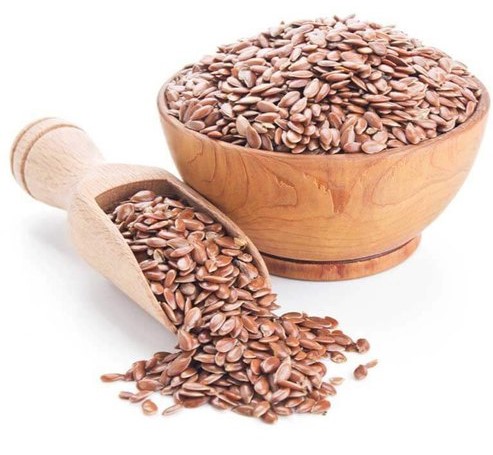
Flax seed
Common Name:- Flax, Alsi
Flax, commonly known as linseed or ALSI in hindi, is popular source of vegetarian Omega-3 fatty acids. Flax seed carries one of the biggest nutrient payloads on the planet. Additionally, flax seed is very low in carbohydrates, making it ideal for people who limit their intake of starches and sugars. And its combination of healthy fat and high fiber content make it a great food for weight loss and maintenance, many dieters have found that flax seed has been a key to keeping them feeling satisfied.
BENEFITS-NUTRITION
Flaxseeds are great source of fiber and work as a natural laxative. They are a great way to keep things regular.
Flaxseed oil contains concentrated amounts of alpha-linolenic acid (ALA), an omega-3 fat. Vegetarians and vegans often use this as a substitute for fish oil.
Ground flaxseed has been shown to work just as well as statins in lowering cholesterol.
Flaxseeds are a good source of magnesium.
Flaxseeds contain high levels of lignans. Lignans may protect against estrogen-dependents cancers such as breast cancer.
An ounce of ground flaxseed per day was shown to regulate estrogen levels in post-menopausal women.
Flaxseeds have been shown to protect post-menopausal women from heart disease.
Flaxseed decreases insulin resistance and may protect against diabetes.
Preliminary research in mice shows that flaxseeds may prevent or slow the spread of prostate cancer.
Studies in mice show that flaxseed may prevent or slow the spread of melano.
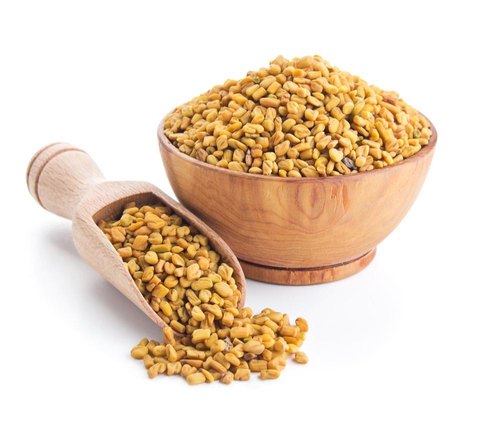
Fenugreek
Common Name:- Methi, Fenugreek
Fenugreek seeds are an annual plant in family Fabaceae, with leaves consisting of three small obovate to oblong leaflets. Fenugreek seeds known as Greek hay or methi in india, belongs to the pea family.
Annual herb with light green leaves and small white flowers grows up to 2 to 3 feet height. The fenugreek seeds are yellow-brown in colour and have pungent aroma flavor with bitter taste.
Western Asia, Southern Europe , Mediterranean region, fenugreek seeds are cultivated from China to Western Europe for its aromatic seeds. It is cultivated worldwide as a semiarid crop. It seeds and leaves are common ingredients in dishes from India.
BENEFITS-NUTRITION
Fenugreek seeds are important ingredient in Middle Eastern and North African dishes.It is generally used in powdered form in Indian dishes or in curries.
The seeds are roasted prior before use. It is used in marinades.
Extract form of this seed is used in butterscotch and rum flavoring and imitation maple syrup and vanilla.
Ground leaves or seeds are used to improve the flavour of some vegetarian dishes.
Few leaves of fenugreek seeds are used in candies, baked goods. chewing gum, ice cream and soft drinks. These seeds are roasted and powdered are used as a substitute for a coffee powder.
It has other uses such as yellow dye, weight gain product, production of steroids, sex hormones, oral contraceptives, veterinary medicines and insect repellent.
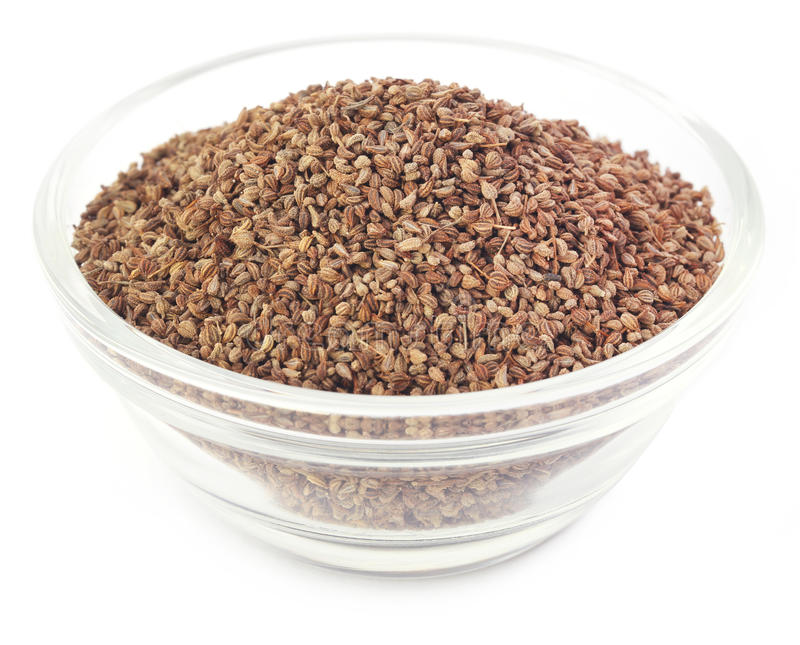
Carom (Ajwain)
Common Name:- Ajwain, Ajwan, Bishop’s weed, Carom, Ethiopian cumin
Ajwain is native to India but is also cultivated in Iran, Egypt and Afghanistan. It is mostly found in Indian cooking. Ajwain seeds are used as spice. The grayish-green seeds are striped and curved (similar to cumin or caraway seeds in appearance), often with a fine silk stalk attached. The seeds are often chewed on their own for medicinal value, tasting bitingly hot and bitter, leaving the tongue numb for a few moments.
Ajwain has a particular affinity to starchy food like savoury pastries and breads, especially parathas, snacks like Bombay mix and potato balls get an extra kick from Ajwain seeds. It is also good with green beans and root vegetables, lentil dishes and recipes using Besan (Chick pea flour).
Ajwain seeds contain an essential oil which is about 50% thymol which is a strong germicide, anti-spasmodic and fungicide. Thymol is also used in tooth paste and perfumery. It is well known seed for instant remedy for Stomachache.
BENEFITS-NUTRITION
Carom (Ajwain) seeds have long been used in traditional Indian cuisine and Ayurvedic medicine. They have been shown to possess antibacterial and anti-inflammatory effects and may be effective in treating peptic ulcers and reducing blood pressure and cholesterol levels.
Carom seeds may also improve airflow to the lungs. Ajwain helps in digestion and absorption of food. Due to lesser fat storage, it ultimately leads to weight loss. Ajwain seeds is also known to increase metabolism.
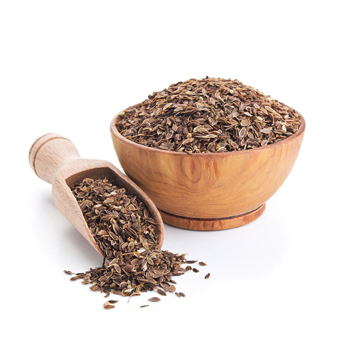
Dill Seeds
Common Name:- Suva Dana, Dill
Dill is an annual herb in the celery Family, Apiaeae. It is the only spices in the genus Anethum.
Dill seed is actually the flat, dark brown, oval fruits of Dill weed similar to caraway in flavor. A winter crop, dill requires a well drained, sandy soil with full exposure to sunlight.
Indian dill seed is longer but narrower than its European seeds quality. Indian dill finds extensive use in foods, beverages, and medicines.
It is a staple in eastern European cuisine, where it is used to flavor breads, vegetables, braised meats and soups, such as the classic Russian cabbage-based soup called borsch. Then can also be used in Salad dressing or to make dill vinegar.
BENEFITS-NUTRITION
Dill include treatment of fever and colds, cough, bronchitis, hemorrhoids, infections, spasms, nerve pain, sleep disorders, control diabetes and Heart disease.
Dill seed treat certain conditions, including heart disease, Alzheimer’s, eumatoid arthritis and certain forms of cancer.
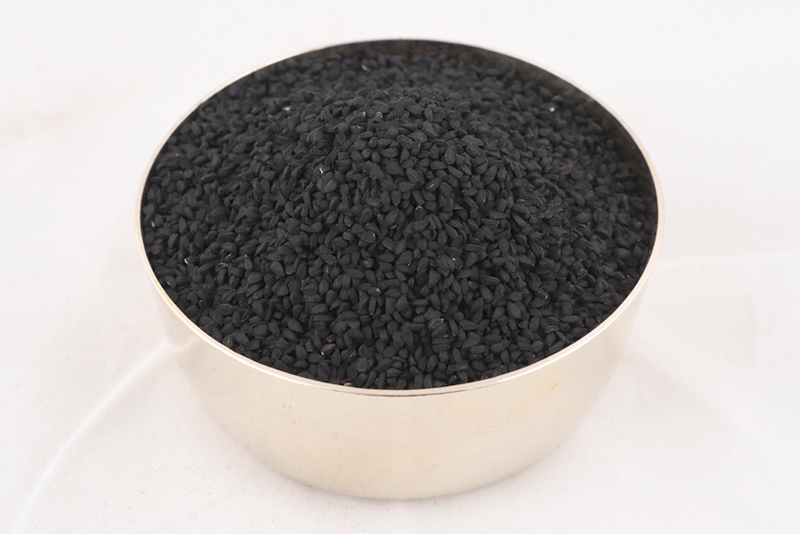
Black Cumin (Kalonji)
Common Name:- Kalonji,Nigella sativa, black seed, black cumin
Black seed (Nigella sativa) is a flowering plant native to Asia and the Mediterranean. Its seed has been used to make medicine for thousands of years.
Black seed might have effects in the body that help boost the immune system, fight cancer, prevent pregnancy, reduce swelling, and lessen allergic reactions by acting as an antihistamine.
People commonly use black seed for asthma, hay fever, diabetes, high blood pressure, eczema, weight loss, menstrual cramps, and many other conditions, but there is no good scientific evidence to support many of these uses. There is also no good evidence to support using black seed for COVID-19.
BENEFITS-NUTRITION
Kalonji is high in antioxidants, which help neutralize harmful free radicals that may contribute to the development of diseases like cancer.
Test-tube studies have found some impressive results regarding the potential anti-cancer effects of kalonji and thymoquinone, its active compound.
Kalonji seeds are a powerhouse of crude fibers, amino acids, iron, sodium, calcium, and potassium. Kalonji is also rich in vitamins that include – Vitamin A, Vitamin B, Vitamin B12, Niacin, and Vitamin C.
Kalonji oil is much better than other oil as it contains essential fatty acids, vitamins, and minerals.










